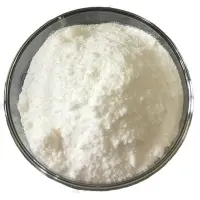-
Categories
-
Pharmaceutical Intermediates
-
Active Pharmaceutical Ingredients
-
Food Additives
- Industrial Coatings
- Agrochemicals
- Dyes and Pigments
- Surfactant
- Flavors and Fragrances
- Chemical Reagents
- Catalyst and Auxiliary
- Natural Products
- Inorganic Chemistry
-
Organic Chemistry
-
Biochemical Engineering
- Analytical Chemistry
-
Cosmetic Ingredient
- Water Treatment Chemical
-
Pharmaceutical Intermediates
Promotion
ECHEMI Mall
Wholesale
Weekly Price
Exhibition
News
-
Trade Service
Melatonin is a naturally occurring hormone in the body that plays an important role in regulating sleep-wake cycles.
In recent years, it has gained popularity in the chemical industry due to its diverse range of applications.
In this article, we will discuss the various applications of melatonin in the chemical industry.
One of the most common applications of melatonin in the chemical industry is as a topical agent for the treatment of skin conditions such as eczema and psoriasis.
Melatonin has been shown to have anti-inflammatory and anti-oxidant properties, which can help to soothe and moisturize dry, irritated skin.
In addition, melatonin has been found to stimulate the production of collagen, which can help to improve the overall texture and appearance of the skin.
Another application of melatonin in the chemical industry is as a preservative in cosmetic products.
Melatonin has been shown to have strong antimicrobial properties, which can help to extend the shelf life of cosmetic products by inhibiting the growth of bacteria and fungi.
In addition, melatonin has been found to have a skin rejuvenating effect, which can help to improve the overall appearance of the skin.
Melatonin is also used in the chemical industry as an antioxidant in various products.
Antioxidants are compounds that help to protect cells from damage caused by free radicals.
Free radicals are unstable molecules that can cause damage to cells and contribute to the aging process.
Melatonin has been found to have strong antioxidant properties, which can help to protect cells from damage and improve overall health.
In addition, melatonin has been found to have a neuroprotective effect, which can help to protect the brain from damage caused by oxidative stress.
Melatonin is also used in the chemical industry as a nutraceutical.
Nutraceuticals are food or dietary supplements that provide health benefits in addition to their nutritional value.
Melatonin is a popular nutraceutical due to its ability to regulate sleep-wake cycles and improve overall sleep quality.
In addition, melatonin has been found to have a range of other health benefits, including improving immune function, reducing inflammation, and protecting against oxidative stress.
Melatonin is also used in the chemical industry as a pharmaceutical ingredient.
Melatonin has been found to have a range of pharmacological effects, including reducing anxiety, improving sleep quality, and reducing the symptoms of depression.
In addition, melatonin has been found to have a range of other potential pharmacological effects, including improving cardiovascular health and reducing the risk of certain types of cancer.
Overall, melatonin is a versatile compound with a wide range of applications in the chemical industry.
It is used as a topical agent, preservative, antioxidant, nutraceutical, and pharmaceutical ingredient.
These applications demonstrate the potential of melatonin to improve skin health, protect cells from damage, improve overall health, and treat various medical conditions.







